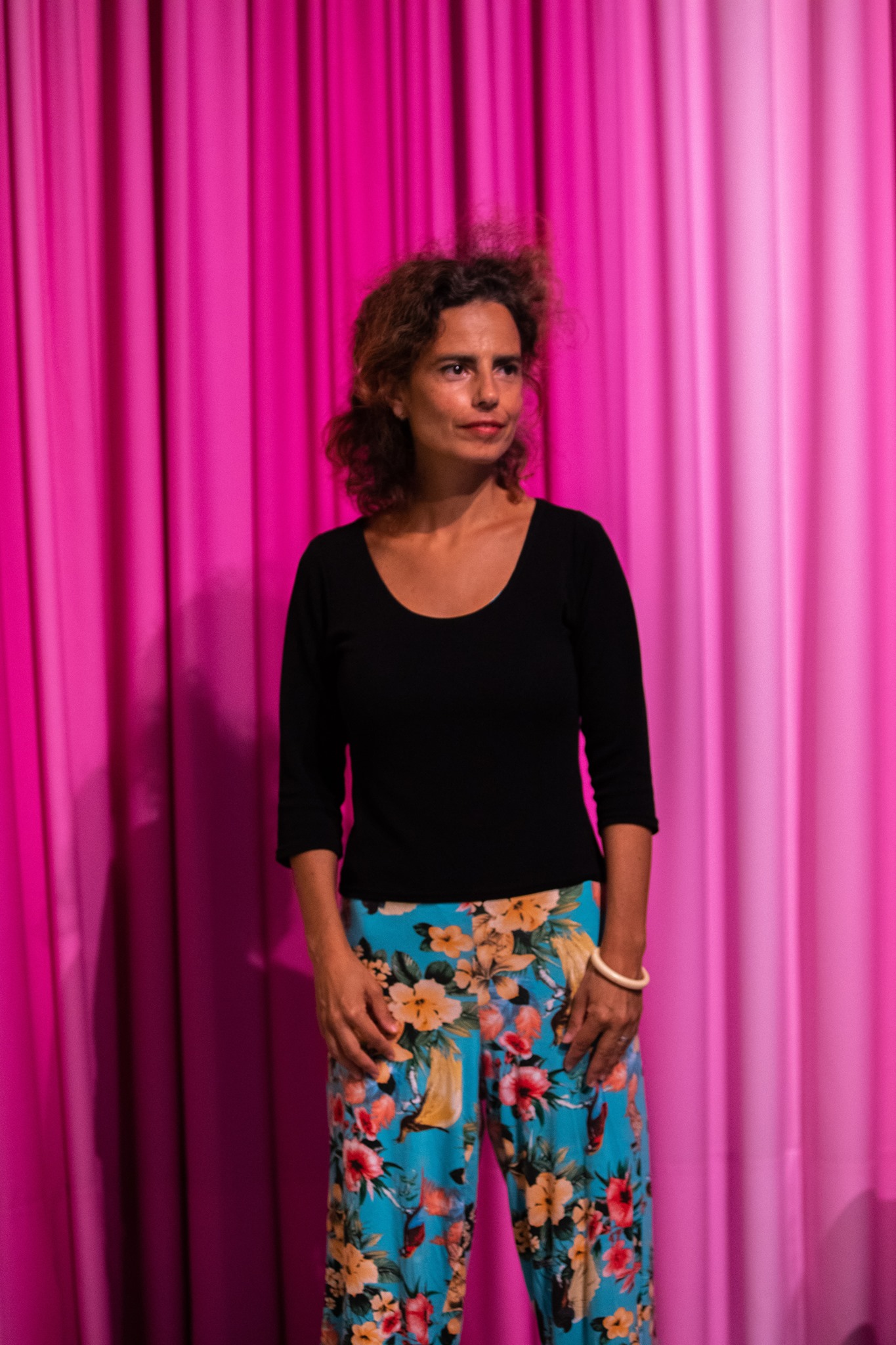| CANAL CES |
| PODCAST |
| TEMAS |
| PESSOAS |
|
Interview by: Ana Cristina Pereira and Rita Santos Este podcast faz parte da série de 28 podcasts realizados sobre o caso português e italiano no âmbito do projeto de investigação de 36 meses (2018-2021) (De)Othering: Desconstruindo o Risco e a Alteridade: guiões hegemónicos e contra-narrativas sobre migrantes/refugiados e “Outros internos” nas paisagens mediáticas em Portugal e na Europa, que pretendeu analisar criticamente representações mediáticas de migrantes, refugiados e “outros internos” em Portugal e na Europa, mapeando as suas interconexões com narrativas produzidas no domínio da segurança e no quadro da Guerra ao Terrorismo. O seu foco, uma análise de Portugal à luz de estudos de caso europeus profundamente afetados por ameaças terroristas (Reino Unido e França) e por fluxos migratórios/de refugiados (Itália e Alemanha), pretende investigar a construção de narrativas transnacionais de risco que permeiam a Europa independentemente da sua exposição “diferenciada”. O projeto foi financiado pelo pelo FEDER – Fundo Europeu de Desenvolvimento Regional através do COMPETE 2020 – Programa Operacional Competitividade e Internacionalização (POCI) e por fundos nacionais através da FCT – Fundação para a Ciência e a Tecnologia (Referencia Projeto: POCI-01-0145-FEDER-029997) ----- English Version This podcast is part of a series of 28 podcasts produced on the Portuguese and the Italian cases as outputs of the research undertaken in the 36 months project (2018-2021) (De)Othering: Deconstructing Risk and Otherness: hegemonic scripts and counter-narratives on migrants/refugees and ‘internal Others’ in Portuguese and European mediascapes that sets out to critically examine media representations on migrants, refugees and ‘internal Others’ in Portugal and across Europe while mapping out their interconnections with particular narratives in the field of security and within the War on Terror. Its focus – an analysis of Portugal in the light of other European cases affected by terrorist threats (United Kingdom and France) and by migrant/refugee flows (Italy and Germany) – aims to explore the construction of transnational narratives of risk pervading Europe regardless of the ‘differential’ exposure to them. The project was funded by FEDER – European Regional Development Fund through the COMPETE 2020 – Operational Programme for Competitiveness and Internationalisation (POCI), and by Portuguese funds through FCT in the framework of the project 029997 (Reference: POCI-01-0145-FEDER-029997).
Even though there are some committed Portuguese journalists and scholars, like Joana Gorjão and Alexandra Lucas Coelho, it is important to disseminate the perspective of the subjects themselves. Marta reiterates the importance of increasing plurality within newspapers and media with more racialized people and people from other regions, not just to talk about racism, but to talk about health, culture, art, politics. Obviously, they will bring their experiences and perspectives into these issues, which makes plurality a rich tool for diversity of information and worldviews. However, she also reinforces the difficulty of these processes to occur within the mainstream media, as it is still very associated with neoliberalism and the right, making it even more difficult to circumvent representations of the Other. In this sense, she states how important it has been to have not only journalists within these media outlets seeking to break the bubble, but also independent productions, like BUALA, which therefore have greater autonomy to define their agenda. pessoas
ligações
|





 Marta Lança is a scholar and editor of BUALA, which is a digital transdisciplinary platform. She also is a member of the Advisory Board of (De)Othering. With an extensive production of articles, essays, images, and literature in which the socio-political and artistic spheres meet, BUALA seeks to encourage debate on post-colonial issues in the transatlantic scenario. The idea arose from several trips that Marta made to Cabo Verde, Angola, Mozambique, having also traveled to Brazil a few times, where anti-racism themes were very latent. In her perspective, there was still a highly stigmatized representation of the PALOP - Portuguese Speaking African Countries - and the migrants who came from these regions, part of that was because of the narratives created by the institutions and the media. For her, there are some points that must be considered. First, there is an almost pornographic coverage of migrants and refugees, which has their images in moments of extreme vulnerability used in a totally uncommitted and irresponsible way by the mainstream media. In addition, there is also a narrative of “they came here to steal your jobs”, and also the security perspective, which creates the idea that the presence of migrants and racialized people increases criminality, portraying peripheral and predominantly migrant neighborhoods as dangerous zones.
Marta Lança is a scholar and editor of BUALA, which is a digital transdisciplinary platform. She also is a member of the Advisory Board of (De)Othering. With an extensive production of articles, essays, images, and literature in which the socio-political and artistic spheres meet, BUALA seeks to encourage debate on post-colonial issues in the transatlantic scenario. The idea arose from several trips that Marta made to Cabo Verde, Angola, Mozambique, having also traveled to Brazil a few times, where anti-racism themes were very latent. In her perspective, there was still a highly stigmatized representation of the PALOP - Portuguese Speaking African Countries - and the migrants who came from these regions, part of that was because of the narratives created by the institutions and the media. For her, there are some points that must be considered. First, there is an almost pornographic coverage of migrants and refugees, which has their images in moments of extreme vulnerability used in a totally uncommitted and irresponsible way by the mainstream media. In addition, there is also a narrative of “they came here to steal your jobs”, and also the security perspective, which creates the idea that the presence of migrants and racialized people increases criminality, portraying peripheral and predominantly migrant neighborhoods as dangerous zones.